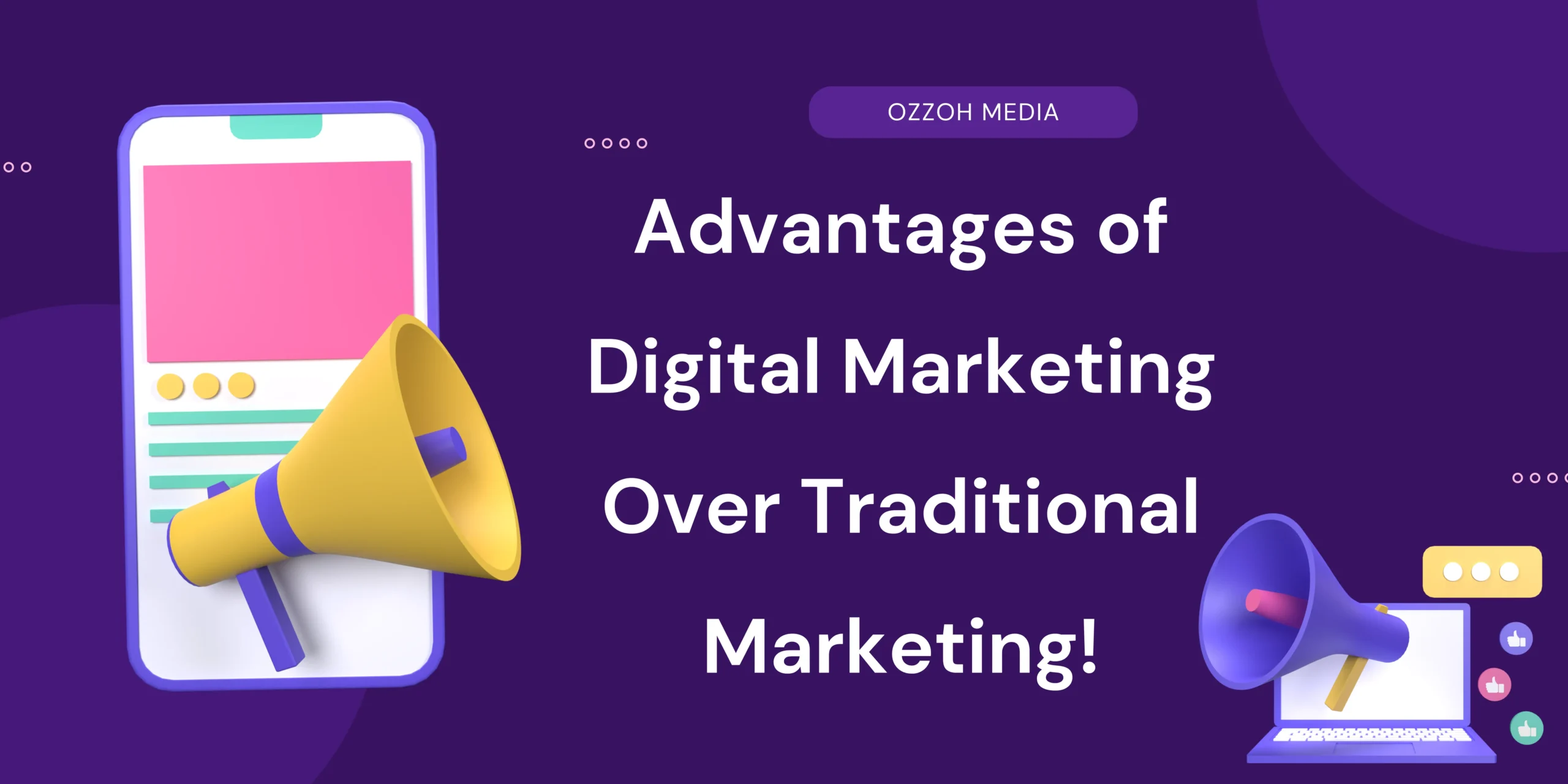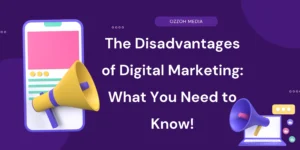Marketing has evolved significantly over the years, transitioning from traditional forms like print ads and billboards to the dynamic and highly measurable world of digital marketing. While traditional marketing methods are still in use, digital marketing has taken the lead in many industries due to its numerous advantages. In this article, we’ll explore the key advantages of digital marketing over traditional marketing and why businesses are increasingly adopting this modern approach.
What is Traditional Marketing?
Traditional marketing refers to the promotion of products or services through offline channels such as television, radio, newspapers, magazines, direct mail, and billboards. These methods have been used for decades and can reach a large audience, but they come with several limitations.
What is Digital Marketing?
Digital marketing, on the other hand, involves the use of online channels such as search engines, social media, email, and websites to connect with potential customers. This form of marketing is data-driven, targeted, and highly customizable, allowing businesses to tailor their strategies to meet specific goals.
Key Advantages of Digital Marketing Over Traditional Marketing
1. Cost-Effectiveness
One of the most significant advantages of digital marketing over traditional marketing is cost. Traditional marketing methods such as TV ads, print media, and radio commercials often require large budgets, making them inaccessible to small businesses. In contrast, digital marketing campaigns—whether through search engine optimization (SEO), social media, or email marketing—are more affordable and offer better returns on investment (ROI). Even with limited budgets, businesses can reach a global audience online.
2. Measurable Results
Tracking the success of a traditional marketing campaign can be challenging. For instance, it’s hard to measure how many people viewed your billboard or heard your radio ad. Digital marketing, however, provides real-time data and analytics. Tools like Google Analytics, social media insights, and PPC reports allow businesses to track the performance of their campaigns, such as website traffic, conversions, bounce rates, and engagement levels. This data helps companies make informed decisions and optimize their strategies for better results.
3. Targeted Audience Reach
One of the major limitations of traditional marketing is its broad reach, which often results in marketing to people who may not be interested in your product or service. Digital marketing, however, allows businesses to target specific audiences based on demographics, interests, behaviors, and geographical location. Whether it’s through PPC ads, email marketing, or social media, digital marketing ensures that your message reaches the right people at the right time, leading to higher conversion rates.
4. Global Reach
Traditional marketing campaigns are often limited to specific geographic locations, such as local newspapers, radio stations, or TV channels. With digital marketing, there are no such boundaries. Businesses can reach potential customers worldwide with just a few clicks, making it an ideal choice for companies looking to expand their market and tap into new regions.
5. Higher Engagement
Digital marketing allows for two-way communication with your audience. Social media platforms, email marketing, and interactive ads enable businesses to engage with their customers in real-time. Customers can like, comment, share, or ask questions, fostering a deeper connection with the brand. Traditional marketing, on the other hand, is mostly one-way, offering limited opportunities for direct interaction with the audience.
6. Real-Time Adjustments
Another advantage of digital marketing over traditional methods is the ability to make real-time changes. If a digital campaign is underperforming, businesses can quickly adjust their ads, budgets, and targeting to improve results. Traditional marketing campaigns, once launched, cannot be changed mid-way without incurring additional costs. This flexibility makes digital marketing more agile and effective in responding to market trends and consumer behavior.
7. Personalization
Digital marketing enables businesses to personalize their content and offers based on user data. Email marketing, for example, allows businesses to send tailored messages to subscribers based on their interests and behavior. Similarly, remarketing ads can be shown to users who have previously visited your website, increasing the likelihood of conversion. Traditional marketing lacks this level of personalization, making it harder to tailor messages to individual customer preferences.
8. Better Return on Investment (ROI)
Digital marketing generally delivers a higher ROI compared to traditional marketing methods. Since digital marketing campaigns are more targeted and trackable, businesses can allocate their budgets more efficiently, ensuring that their marketing dollars are spent wisely. Whether it’s SEO, PPC, or social media marketing, the ability to measure and adjust campaigns ensures better returns over time.
9. Sustainability
Traditional marketing often relies on physical materials like paper for brochures, posters, and billboards, which can have a negative impact on the environment. Digital marketing is more eco-friendly, as it is paperless and reduces the carbon footprint associated with producing and distributing traditional marketing materials. For businesses that are mindful of sustainability, digital marketing is a more environmentally responsible choice.
10. Enhanced Customer Insights
Digital marketing tools provide businesses with detailed insights into customer behavior, preferences, and purchasing patterns. Through website analytics, social media metrics, and email open rates, companies can gain valuable information about their audience. This data can be used to refine marketing strategies and improve customer targeting. Traditional marketing lacks this depth of customer insight, making it harder to optimize campaigns for better results.
Conclusion
While traditional marketing still has its place, the advantages of digital marketing over traditional marketing are clear. Digital marketing offers cost-effectiveness, better targeting, real-time adjustments, and measurable results that allow businesses to maximize their marketing efforts. Additionally, with global reach and higher engagement, digital marketing opens up new opportunities for businesses to grow and connect with their audience.
By understanding these benefits, businesses can make smarter marketing decisions and take full advantage of the opportunities that digital marketing provides. In today’s digital era, incorporating these strategies can lead to long-term success and higher profitability.




